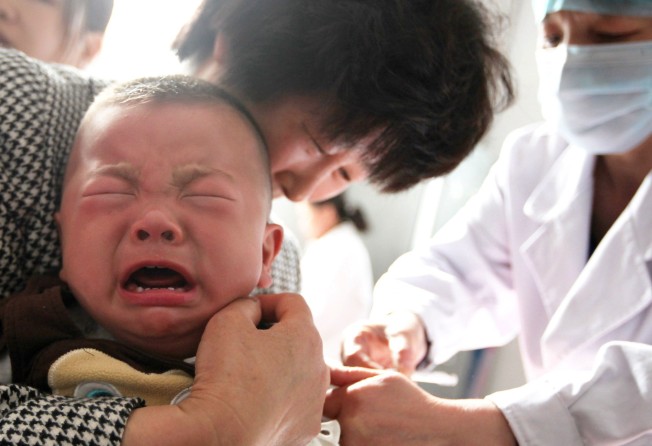The moral decay of China has been greatly exaggerated
Anson Au says that while the bout of Chinese soul-searching in the wake of the recent vaccine scandal is understandable, social science research actually shows a China with a healthy respect for modern cosmopolitan values

This summer, a safety scandal involving vaccine maker Changsheng Bio-technology rocked China and made headlines around the world. The Chinese company has been accused of fabricating quality control records and selling substandard, dangerous vaccines to inoculate over a quarter of a million children.
Many Chinese see this as but the latest in a long line of public health and food safety scandals in the country – from expired vaccines and contaminated milk powder to even the production and distribution of fake food – incidents that have left up to thousands ill or dead in recent years.
For many critics, health and food safety scandals reflect the moral values – or lack thereof – in China. But the incidents also highlight an angst over moral decay that has festered since China’s economic miracle: a deep-rooted concern about whether the country has embraced pragmatic capitalist principles at the expense of ethics and lost its way after abandoning spiritualism and Confucianism during the Cultural Revolution.
However, social science research does not really support this view. It’s far from the truth that modern China has succumbed to moray decay.
Watch: Vaccine scandal is latest in China’s history of substandard infant products
To begin with, the abandonment of Confucianism is a poor explanation for moral decline. In the decades leading up to the 1980s, writers and scholars often cited Confucianism as the reason China was poor and backward: people were too committed to tradition and harmony to break away from the status quo, innovate and manifest any entrepreneurial spirit. But from the 1980s onwards, when China began its rise as an economic power, the same commentators pinpointed Confucianism as a factor: people were apparently successful because they valued hard work and were committed to improving life for their families. Some research has even associated Confucian culture with support for authoritarianism.
We can’t cherry-pick a few examples to generalise about and denigrate the moral state of an entire people
As this brief history tells us, it is because Confucianism can be used as an explanation for both backwardness and progress that it doesn’t work for either; both sets of explanations seem enticing but they actually lack conclusive empirical evidence to clear the haze and provide more precise answers.
A 2017 article published in the Chinese Sociological Review, one of the foremost journals about China, shows how China has neither expunged its moral values nor is in moral decline. Analysing data from the Chinese General Social Survey, which is statistically representative of the entire population, the article describes a Chinese moral landscape that is far from barren. It also discovers how it differs from those of other major countries.
Like in other nations, people in China who enjoy high individual-level status – that is, those who are more educated, have higher income, or live in urban areas – are more predisposed towards post-materialist values, which concern quality of life, individual autonomy and creativity.
But unlike in other countries, people in China who are ethnic minorities, belong to the working class or live in rural areas are also likely to subscribe to post-materialist values. In other words, the people in China who suffer the most social and economic disadvantages are actually not the most eager to profit at the expense of other people’s well-being.
Watch: 100 Good Samaritans pull lorry out of river in China
Even in modern Western nations, people in these same social categories aren’t like this. This goes against the stereotypical criticism aimed at China.
Although there is income inequality in China, research shows that at the provincial level, high income inequality actually tends to make Chinese people more supportive of democracy and tolerant of cultural diversity – that is, more liberal. Inequality makes Chinese more willing to challenge the status quo and improve everyone’s well-being. And once again, people who are ethnic minorities or working-class are also more likely to be more liberal.
In sum, yes, there is a divide in the values people hold in China. Chinese who are male, younger and Communist Party members are more likely to be liberal than those who are female, older and non-party members. But none of this means Chinese culture is a fragmented, morally bankrupt system.
Rather, it shows a society that has a high respect for modern cosmopolitan values and holds promise for even greater changes.
We can’t cherry-pick a few examples to generalise about and denigrate the moral state of an entire people. It is just as easy to find examples of Chinese people’s goodness: the story of the man who ferried passers-by to safety during a flood, for instance, among countless other stories of Chinese Good Samaritans.
As Mahatma Gandhi once said, “You must not lose faith in humanity. Humanity is an ocean; if a few drops of the ocean are dirty, the ocean does not become dirty.” China isn’t a perfect society. But it’s a perfectly human one – and one that other countries can learn from.
Change is on its horizon, and we can play a part in pushing it towards betterment – first by purging negative stereotypes that cause the very divisions we worry about.
Anson Au is a scholar and writer whose work covers culture, health and politics. He is currently a visiting scholar at the Seoul National University Asia Centre and at Yonsei University, as well as a PhD student in sociology at the University of Toronto